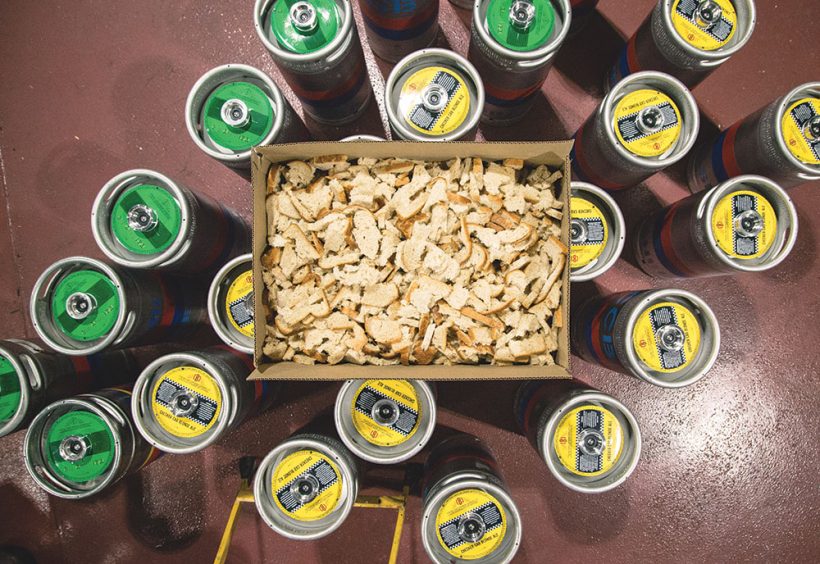-
 Stop lurking! Log in to search, post in our forums, review beers, see fewer ads, and more. — Todd, Founder of BeerAdvocate
Stop lurking! Log in to search, post in our forums, review beers, see fewer ads, and more. — Todd, Founder of BeerAdvocate
Rescuing Food Waste Through Brewing
 Brewed in the Bronx, Toast Ale replaces a portion of its malt with stale bread. | Photo courtesy of Toast Ale USA
Brewed in the Bronx, Toast Ale replaces a portion of its malt with stale bread. | Photo courtesy of Toast Ale USA
Instead of throwing away a bruised peach or a stale loaf of bread, several breweries and organizations are taking food waste and transforming it into beer. While this can make brewing a bit more complex and labor intensive, there is the potential to help reduce the approximately 40 percent of food that goes to waste every year in the United States.
The nonprofit Environmental Working Group (EWG) recently partnered with Washington DC’s Atlas Brew Works to create Rescue Brew Batch #1: Ugly and Stoned, a sour ale made from produce that might otherwise be thrown away, including apricots, peaches, and nectarines donated by MOM’s Organic Market. Other examples include Lox Up Your Daughters from Cambridge Brewing Company in Massachusetts, which uses day-old bagels from its neighbor, Mamaleh’s Delicatessen. And in Pennsylvania, Sly Fox Brewing Company’s Circle of Progress Pale Ale uses locally grown barley malt fertilized with composted food scraps from grocery store chain Wegmans. To complete the circle, Sly Fox returns its spent grain to barley farmers as fertilizer.
Bread is a popular candidate for rescue brewing because of its potential for direct substitution and also because it’s a huge part of the food waste equation, explains Madi Holtzman, vice president of Toast Ale USA. An American Pale Ale contract brewed by Chelsea Craft Brewing Company in the Bronx, N.Y., Toast replaces 30 to 40 percent of its malt with surplus bread from local bakeries.
“Bread is the one thing that goes to waste in such exorbitant quantities that even food pantries and kitchens need to turn it away. To date, there has not been a scalable way to keep it in the food chain,” says Holtzman.
Another brewery to utilize stale bread is Pennsylvania’s East End Brewing Company, which released Loaf beer in November 2016 as a fundraiser for 412 Food Rescue, a nonprofit that combats hunger by promoting food recovery. East End founder and co-owner Scott Smith says he plans to brew with bread again. But without a group of volunteers to break the bread down into crouton-sized pieces to avoid jamming the mash, the process would be prohibitively expensive, limiting large-scale viability.
For now, most of these beers represent one-off projects. But with the right infrastructure and coordination, incorporating food waste into all levels of brewing could have a substantial impact on the amount of food that ends up in landfills.
“We would love to see this idea spread like wildfire and we think there is an appetite for solutions like this around the country,” says Colin O’Neil, EWG’s agriculture policy director. ■
 Previous: Zombie Beer Brands
Previous: Zombie Beer Brands

